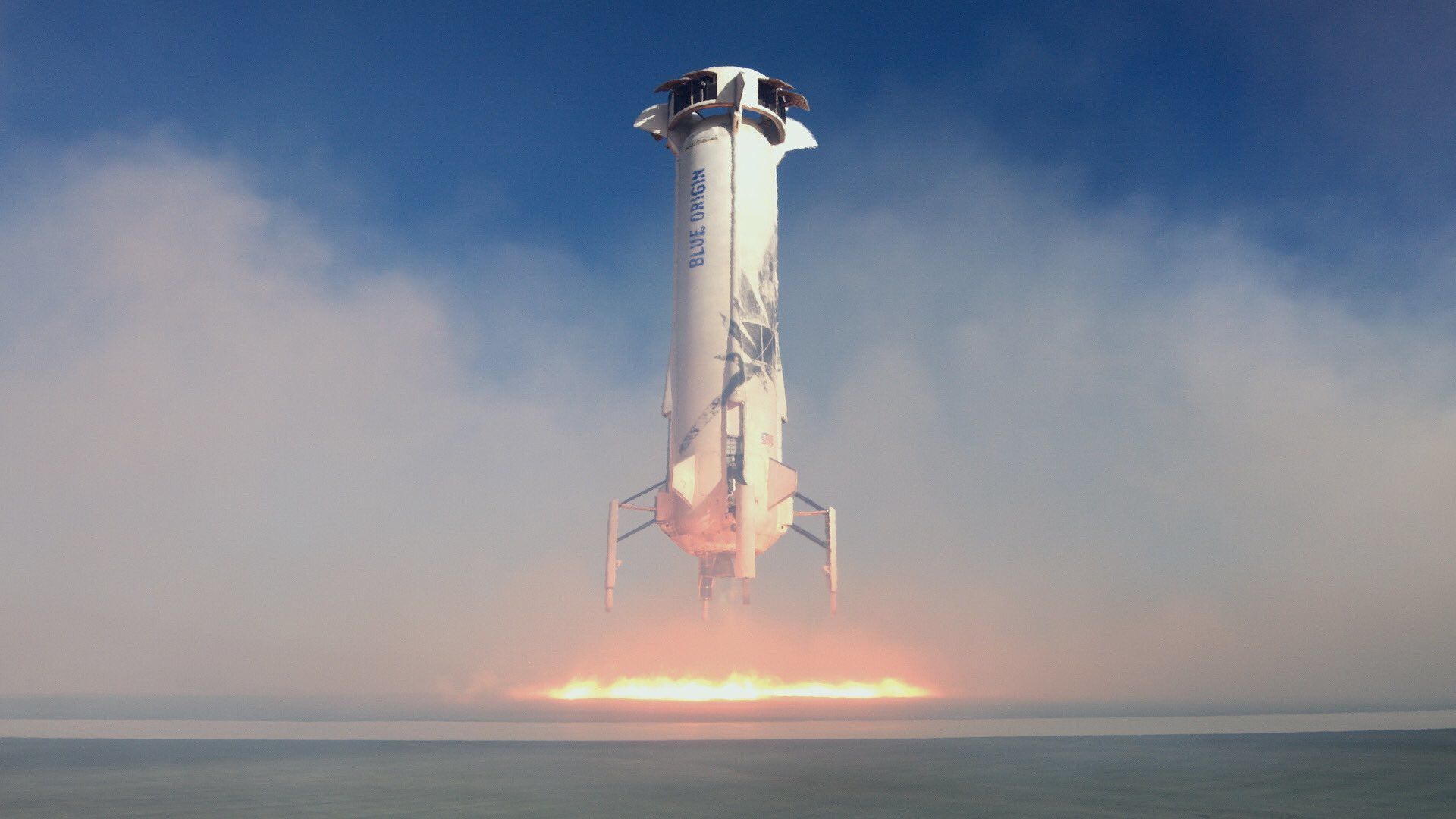Blue Origin to Build More Rockets Amid Expectations to ‘Easily Double’ Space Tourist Flights
23:50 GMT 17.02.2022 (Updated: 13:28 GMT 06.08.2022)

© Photo : Twitter / @blueorigin
Subscribe
Jeff Bezos’ Blue Origin space company says it will have to build more of its New Shepard rockets in order to meet the “very robust demand” for space tourism, the company’s CEO said.
At the FAA Commercial Space Transportation Conference in Washington, DC, on Thursday, Blue Origin CEO Bob Smith said the company had “thousands of people in the auction process” for tickets, indicating “very robust demand” for more New Shepard flights, according to CNBC.
“I think the challenge for Blue at this point is that we’re actually supply limited,” Smith said. Blue Origin only has one New Shepard rocket capable of carrying passengers at present, the RSS First Step, which made three flights carrying a total of 14 passengers into space in 2021. The older RSS H.G. Wells is only used for cargo contracts with the US space agency NASA.
Smith told the conference attendees the company could “easily double that” this year. Each capsule can carry up to six passengers.
Manned flights, which began in July 2021, carried only auction winners, close associates of the program, including Bezos himself, or celebrities, such as William Shatner, who portrayed the 23rd century captain of the fictional starship USS Enterprise on the original “Star Trek” TV series. Seats have been auctioned for as much as $28 million each.
That’s a far cry from the $450,000 at which Blue Origin’s space tourism competitor, Virgin Galactic, began selling tickets to the general public on Wednesday. That company, owned by billionaire Richard Branson, uses spaceplanes that launch from a high-altitude mothership in order to achieve altitudes nearing the edge of space. By comparison, Blue Origin’s New Shepard is a single-stage reusable rocket that lifts a passenger capsule above the 62-mile-high space boundary into suborbital space flight.
In August 2021, Blue Origin brought an ultimately-doomed lawsuit challenging NASA’s awarding of a massive $2.9 billion contract to build a manned lunar lander to another of the company’s competitors, SpaceX. The company also has a planned heavy-lift rocket, New Glenn, that has been repeatedly delayed and is now expected to fly for the first time no sooner than the end of 2022.
